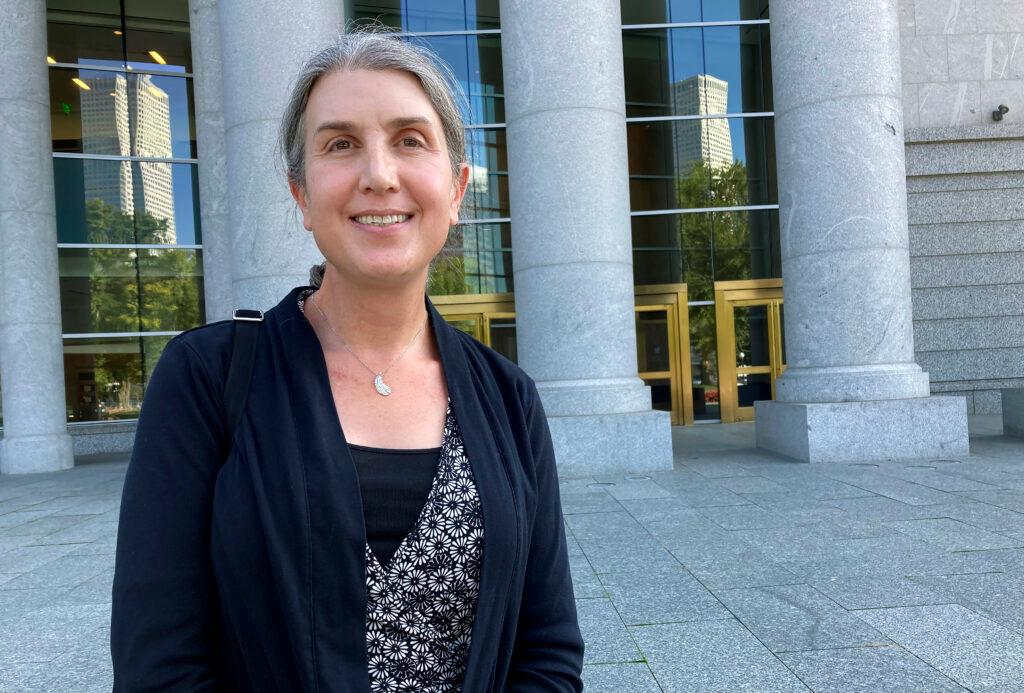
Lakewood baker Jack Phillips, who has long fought not to make cakes he says violate his Christian religious beliefs, will be in front of the Colorado Supreme court today.
The owner of Masterpiece Cakeshop went all the way to the U.S. Supreme Court in a previous case when he refused to bake a wedding cake for a gay couple. He won in 2018 on narrow technical grounds.
This current state case stems from 2017 when Autumn Scardina, a transgender woman, attempted to order a cake from Phillips to celebrate her birthday and gender transition — the same day the U.S. Supreme Court announced it would take up the first wedding cake case. Phillips again declined, citing his Christian beliefs, and Scardina filed a complaint with Colorado’s Civil Rights Commission.
When the commission dropped Scardina’s original complaint under a deal with Phillips, she and her lawyers refiled in state court.

Scardina has won at every step so far in the Colorado courts. District court judge A. Bruce Jones found that the state law that makes it illegal to refuse to provide services to people based on protected characteristics – like race, religion or sexual orientation – does not violate a business owner's right to practice or express their religion.
And Jones ruled that the cake Scardina asked Phillips to make — blue on the outside with a pink interior — would not reach the level of protected expression.
“We conclude that creating a pink cake with blue frosting is not inherently expressive, and any message or symbolism it provides to an observer would not be attributed to the baker,” wrote the judge.
On Tuesday, Phillips’ lawyers, from the conservative legal group Alliance Defending Freedom, will try to convince Colorado’s justices that the lower courts were out of step with the latest rulings on religious protections.
ADF is relying on another Colorado case they took to the U.S. Supreme Court in 2022, 303 Creative v. Elenis. In a 6-3 ruling last year, the court’s conservative Justices concluded Colorado could not prevent a website designer from posting a message saying she would not make wedding sites for same-sex couples.
“Free speech is for everyone. As the U.S. Supreme Court held in 303 Creative, the government cannot force artists to express messages they don’t believe,” Phillips’ attorney Jake Warner said in a statement. “Because that cake admittedly expresses a message, and because Jack cannot express that message for anyone, the government cannot punish Jack for declining to express it.”
ADF argues that Phillips did not refuse to serve Scardina simply because she is trans, since he would be willing to make any other baked good for her that doesn’t celebrate her transition.
However, Scardina’s lawyers argue that since Phillips would make the same cake design — blue on the outside, pink on the inside — for a non-transgender client, his refusal is indeed based on her gender, which is protected under Colorado’s civil rights law.
This story contains reporting from the Associated Press







